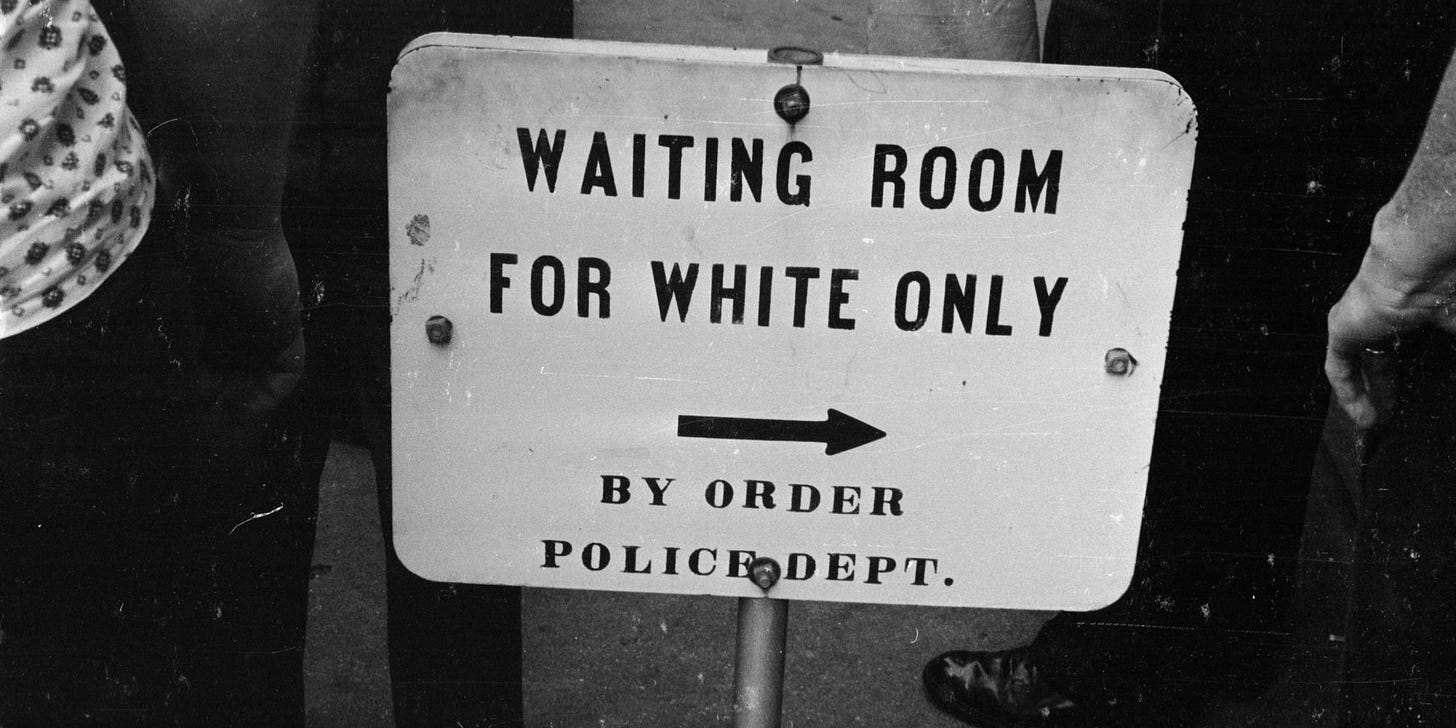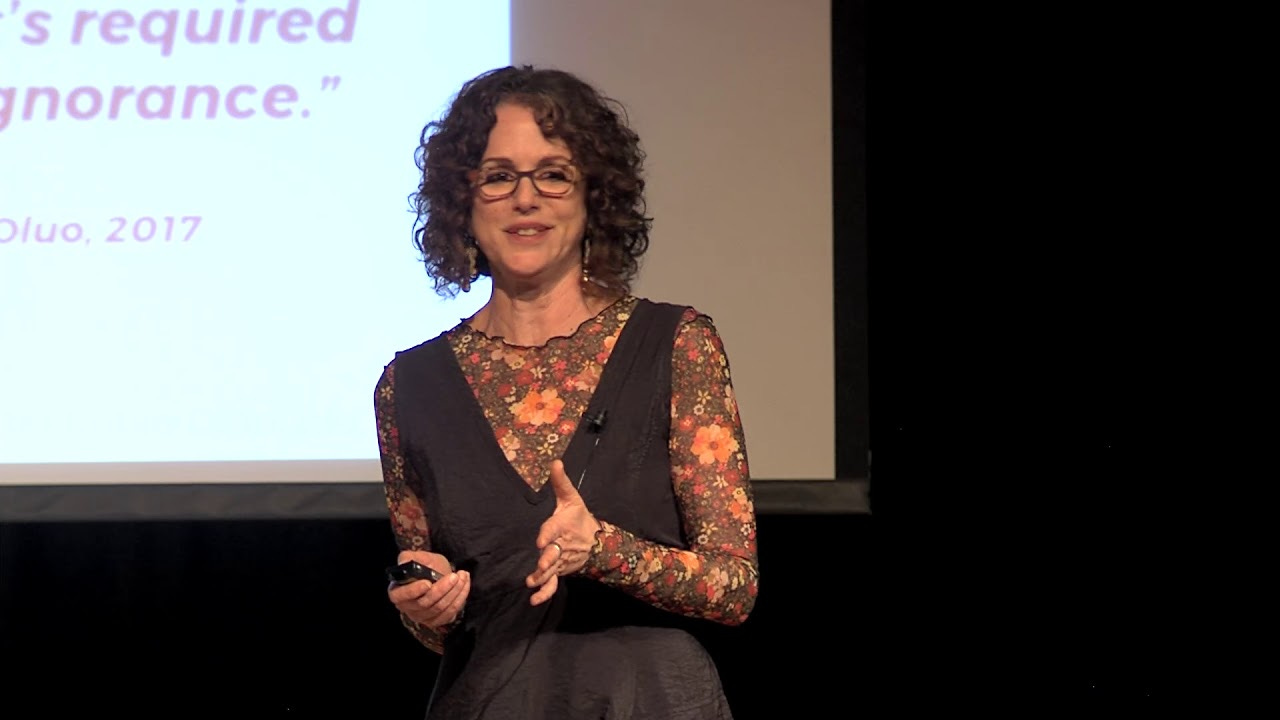Is Mental Health Therapy Political?
Graduate programs in counseling insist that we must always inject politics into therapy. But who does that help? Part 3 in a series.
Ryan Rogers is currently a graduate student in clinical mental health counseling. He has a bachelor’s degree in psychology and a work background in addiction treatment. His book The Woke Mind comes out in January. This is his third installment detailing the fanatical social justice influence in counselor training. His first piece outlined political bias and lack of academic rigor in counseling graduate programs. His second piece dealt with the obsession with race in therapy education. For obvious reasons, he is not naming the program he is currently training in. The views expressed below are his own reflections on the education and training he is currently receiving.
Should mental health therapy be political? Derald Wing Sue and the authors of the Counseling the Culturally Diverse textbook believe it should.
The authors tell us that the predominant issues faced by racial minorities are generally systemic racism, therefore, individual counseling does little good. Here, the role of the counselor should be to focus on “advocacy” and bringing “systemic change.” Like Robin DiAngelo, these authors define cultural competency as the willingness to engage in “a lifelong process” which involves advocating for political changes in society.
Therapy is of little use for marginalized populations, they tell us, unless the counselor is willing to be a “change agent.” This involves, “being focused on changing environmental conditions, as opposed to changing the client.” Problems of minority clients should always be viewed as the outside world acting on them, rather than coming from their individual psychology. They tell us that “multiculturalism leads to social justice initiatives and actions,” and tell us that “social justice advocacy” is always a key component of therapy.
As though they were updating the Communist Manifesto, the authors claim, “The roles of colonizer-colonized, master-slave, and oppressor-oppressed have defined relationships of who are leaders and followers, who is superior and inferior, and who is given higher or lower status.” Diagnosing and healing individual psychology is a relic of White oppressors. Political activism is the therapy of the future.
We should not adopt a perspective that “people succeed solely because of their own efforts and abilities” because this would be “blaming the victim.” Utilizing objectivity in therapy is seen as lacking in multicultural competencies, thus racist. That would be privileging “White middle-class norms.”
“Mental health practice may be viewed as encompassing the use of social power and functioning as a handmaiden of the status quo,” Sue and colleagues tell us. To social justice activists, nothing could be more nefarious than the “status quo.” Overturning the existing order must always be our primary objective. The mental health and well-being of the client is secondary to this goal. They write, “Multiculturalism is intimately related to social justice” which requires therapists to engage in “systems-level work.” This is always a code for far left-wing politics. Not only are conservative politics off the table, but even traditional liberal politics are scorned. They believe that only radical socialism rooted in identity politics can liberate people, which will somehow lead to an improvement in the mental health of our clients.
The counselor educators write, “A basic premise of social justice counseling is that culturally competent helping professionals must not confine their perspectives to just individual treatment but must be able to intervene effectively at the professional, organizational, and societal levels as well.” Any therapy practice that limits itself to the interaction between counselor and client is seen as hopelessly naïve at best and complicit in an oppressive system at worst.
Like Gilles Deleuze and Felix Guattari, Psychiatrist R.D. Laing asks, “Is schizophrenia a sick response to a healthy situation, or is it a healthy response to a sick situation?” The authors of this textbook argue that fighting in school may very well be a healthy response to living in a systemically racist society. Individual personal responsibility should not factor in. Like Franz Fanon, these authors believe that behavioral problems from marginalized students are always a form of self-defense and resistance against oppression.
They bemoan how “mental health professionals are ill-equipped and untrained as social change agents.” One might wonder why graduate programs in counseling spend any time at all on counseling skills when they seem to believe our time would be better spent making signs for rallies and protests. Rather than placing the focus of therapy on an individual relationship, they ask, “Would it not make more sense to take a proactive and preventative approach by attacking the cultural and institutional bases of the problem?” Of course, they mean attacking capitalism, but they also seek to attack the entire Enlightenment project that serves as the foundation for Western Civilization. They tell us that the therapy profession should break away from strict individualism to focus on “fair distribution of power and resources.”
They quote one social justice scholar who said, “Social justice includes a vision of society in which the distribution of resources is equitable and all members are physically and psychologically safe and secure.” Notice the subtle injection of Marxism. They are not advocating for an equitable distribution of political rights and opportunities. They are pushing for an equitable distribution of resources, or a redistribution of the means of production. Demanding that everyone be “psychologically safe and secure” is so vague that almost any political project could fit inside it. They also push for “reducing or eliminating disparities” in any areas “that lower the quality of life for affected populations.” This is a broad and sweeping proposal. They continually harp on the need for therapists to support “fair distribution of power and resources,” though I doubt we are allowed to choose the politics we feel would best uphold such a principle.
Therapy must focus on social justice and needs to adopt “a social-change perspective that focuses on ending oppression and discrimination in our society,” which includes pushing for governmental changes. The therapist should assume that conflicts with dominant power structures are “inevitable and not necessarily unhealthy.” Therapy must include “social and political action.” It is necessary for therapists to support “affirmative action, civil rights voting protections, sexual harassment laws.” This vision of therapy would replace the focus on processing thoughts and emotions with the grand vision of political change brought about by “social justice.”
They frame it as a problem if the therapist tries to empower the client to believe they can change their own life. In some ways, disempowering the client is seen as a positive because then they will give up on the White, Western notions of individual change and begin to pursue “systemic” political change.
In addition to broader systemic oppression, the authors discuss “the manifestations of systemic oppression within the counseling practice.” This is likely due to it being “primarily a White male middle-class activity based on values that include rugged individualism, individual responsibility, and autonomy.” This causes the therapist to mistakenly “encourage self-exploration so that the client can act on his or her own behalf.” While autonomy may be a good goal for White clients, “to do so with a client of color without addressing the simultaneous and uncontrollable impact of racism represents a form of victim blaming.” Nearly every single racial minority I have ever worked with would find this notion either laughable or offensive.
Failure to directly address “the historical and systemic realities of oppression” could lead the therapist to “acting out their fragility to the detriment of their marginalized clients.” Failure to adopt this political philosophy will cause therapists to be “instruments of oppression and transmitters of society’s values.” Remember, any society based on Western values is, by definition, oppressive. Therefore, helping a client fit in and succeed in this society will do nothing but further their own oppression. However, it may be appropriate to help a White client succeed. This is considered “anti-racism.”
Cultural biases such as “belief in Christianity (or monotheism), individualism, a Protestant work ethic, and capitalism,” or “control of emotions and the written tradition” may be valued by White people, but holding such values as a therapist could alienate minority clients. Many white supremacists also refuse to see people as individuals and view racial minorities as incapable of upholding Christian values or maintaining a work ethic. Often, the only difference between racism and anti-racism is who is making the statement. The idea that a Black or Latino client may value hard work, want to control their emotions, and strive for autonomy seems foreign to these authors.
Clients may face discrimination for beliefs in “collectivism, present-time orientation, and the importance of shared wealth.” Such counselor educators love to blur the lines between cultural aesthetics that should be respected and legitimate differences in values. “He likes to attend large gatherings with extended family” is not the same type of collectivism as “he’s a Communist.” Also, some cultural values, such as around time, may be more or less useful in succeeding in America. If a client is unable to come to work on time, he is the one who will pay the price by losing his job, not the therapist or the counselor educators running around to present their work at conferences.
Internal locus of control is associated with “higher achievement motivation, belief in mastery over the environment, superior intellect, superior coping skills,” and more. Unfortunately, these traits are also associated with “U.S. society” and “Western mental health.” The authors tell us that an external locus of control is more realistic for marginalized people because “Blacks are not given an equal opportunity to obtain the material rewards of Western culture.” Giving people agency by saying they have the ability to shape their own lives “enables society to ignore the influence of external factors and to protect and preserve existing social institutions and belief systems.” Again, disempowering Black clients by telling them they cannot control their fate is necessary for the greater political project.

“White upper and middle classes” tend to believe in ideals like “liberty and justice for all” and pursuing “fulfillment of personal destiny.” Treating racial minorities as a hive mind while believing White people are autonomous agents who control their destiny should be seen as offensive. Many minority clients come to therapy in order to take control of their internal feelings so they can shape their lives for the better. Treating them like helpless children who need to be saved by the superior political views of the therapist is infantilizing and will leave many worse than when they originally sought help.
The end goal for the therapist when working with minority clients is obvious: the way to be a good ally is by “working for campaigns for political candidates who will advocate for social justice.” If you are a Black or Latino person seeking help for anxiety or depression and your therapist was trained on this textbook by Derald Wing Sue and colleagues, you might be out of luck. Your most likely prescription will be: vote Blue and call me in the morning.









I’m grateful to see this piece written. When I was in graduate school after completing our mandatory multiculturalism course, I had a one on one with the Dean of the clinical counseling department to raise a number of issues about the framework and ways we were to navigate conversations with clients of color. As a Latina, I saw many of the issues you speak to in this article. Please keep up the good work.
Great piece on this subject. Very familiar. I’m a graduate student. I’m also writing about my experiences. Primarily on the feminization of the counseling industry leaving males pursuing a career in this field feeling like they’re on an island.
I’ve now had 2 professors t ll me to be more like a woman and really shed the male aspects of me. Not kidding.